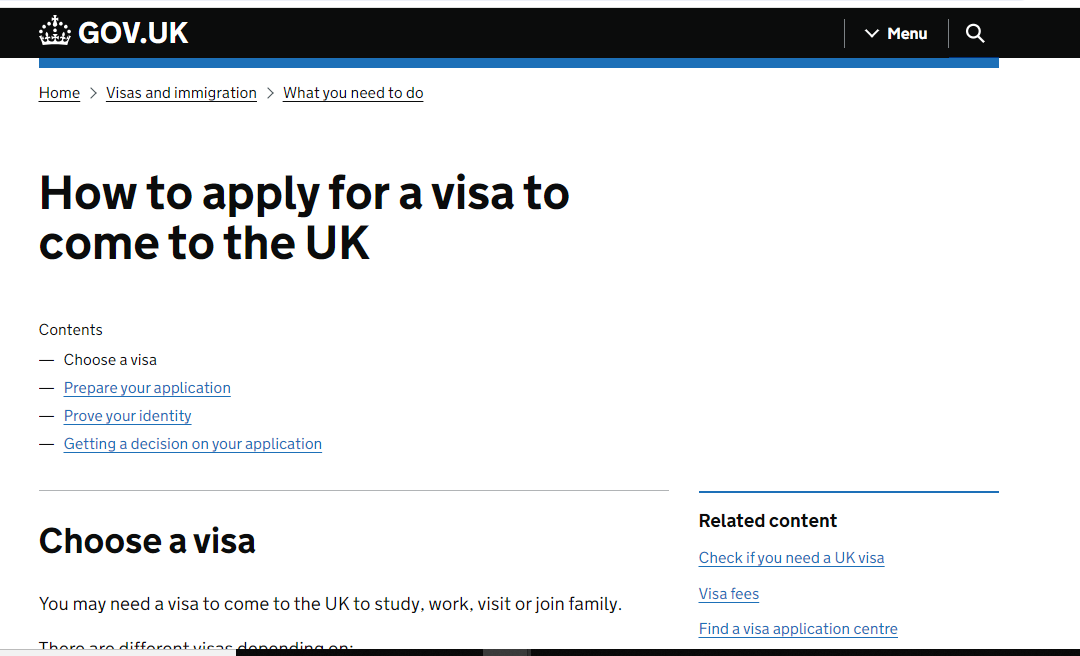5 Things to Know Before Starting a Business in the UK (For Visa Holders)
5 Things to Know Before Starting a Business in the UK (For Visa Holders)
The United Kingdom’s business environment offers various opportunities for entrepreneurs and investors worldwide. With its established financial sector, innovative industries, and supportive infrastructure, the UK continues to attract global talent and business ventures. Establishing a business in the UK for visa holders has its challenges. Understanding the legal framework, regulatory requirements, and cultural aspects is crucial for success.
This guide provides essential considerations for visa holders planning to start a business in the UK. It covers critical areas such as visa restrictions, business structure options, tax obligations, networking strategies, and cultural standards in British business practices. By addressing these key areas, visa holders can understand the complexities of the UK business environment and position themselves for success.
Read: 7 Secrets to Acing Your UK Work Visa Interview
1. Understanding Your Visa Restrictions
Different visas come with varying levels of permission for business activities. It’s required to have a clear understanding of what your specific visa allows:

- Innovator Founder Visa: This replaces the previous Innovator and Start-up visas. It’s designed for people who want to set up and run an innovative business in the UK. Applicants must have their company or business idea assessed and approved by an endorsing body.
- Skilled Worker visa was previously a Tier 2 (General) work visa. It remains in place for employed work, with limited self-employment possibilities alongside the main job.
- Global Talent visa: This visa is for leaders or potential leaders in specific fields, such as academic or research, art and culture, and digital technology.
- High Potential Individual visa: Remains an option for graduates of top global universities.
Make sure you know precisely what your visa allows you to do. Breaking the rules can get you in big trouble. You might lose your visa or have problems getting one in the future. Always follow the rules of your visa to stay safe.
2. Choosing the Right Business Structure
When starting a business in the UK, you have three main structure options:
Sole Trader: This is the simplest structure. You run the business yourself and keep all profits after tax. However, you’re personally responsible for any business debts. This structure may not be allowed under all visa types.
Limited Company: Your business is a separate legal entity. It protects your assets but involves more paperwork and regulations. Some visas may require or prefer this structure.
Partnership: You share responsibility and liability with one or more partners. It can be a general or limited partnership. Clear agreements between partners are crucial.
Each structure has different registration processes, tax rules, and liability levels. Your visa may affect the business structure you choose. It’s best to get professional advice before deciding.
Read: 8 UK Workplace Etiquette Mistakes That Could Cost You
3. UK Tax Obligations
Understanding UK taxes is necessary for business compliance and planning. Key taxes include:
- Corporation Tax: Limited companies pay 25% over £250,000 on their profits.
- Income Tax: Individuals and sole traders pay a 20% basic rate, a 40% higher rate, and a 45% additional rate at a specific income level.
- Value Added Tax (VAT): Applies to most goods and services at 20%. Registration is mandatory if turnover exceeds £85,000.
- National Insurance: A form of social security tax employers and employees pay.
As a non-UK citizen, you may have additional tax considerations:
- Double taxation agreements may affect your tax obligations.
- You must report foreign income.
- Your tax residency status impacts your tax liabilities.
It’s advisable to consult a qualified tax professional for accurate advice on international business taxation and compliance.

4. Building a Local Network
Establishing a strong network is viable for business success in the UK. To build your local connections, consider joining local chambers of commerce and business associations, attending industry-specific events and trade shows, and utilizing online platforms like LinkedIn for professional networking.
Another effective strategy is to join co-working spaces, which can provide opportunities to connect with other entrepreneurs. It’s important to note that networking in the UK often involves a blend of formal and informal settings. While British people may initially appear reserved, investing time in building relationships can lead to valuable business connections and opportunities.
The key is to engage consistently and authentically across various networking channels, allowing professional relationships to develop naturally over time.
5. UK Business Culture and Etiquette
British business culture has some important customs to know. Punctuality is highly valued; arrive on time or slightly early for meetings. Communication tends to be polite and indirect; they often speak politely and indirectly, so notice hints in their words.
They enjoy humor, especially gentle teasing and joking about themselves. Please don’t take everything they say seriously. Business dress is generally conservative, especially in traditional sectors. Workers keep their work and personal lives separate. Learning these habits can help you work better with British people and avoid mistakes.
Understanding these cultural points is key for non-British people starting a business in the UK. Along with sorting out visas, choosing how to set up your business, handling taxes, and making connections, knowing how British business works will help you succeed. The UK offers great opportunities for new businesses if you prepare well and understand how things work there.
